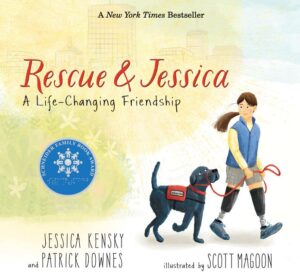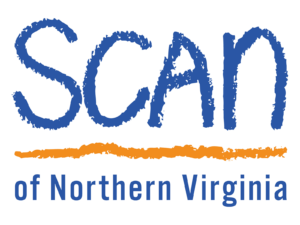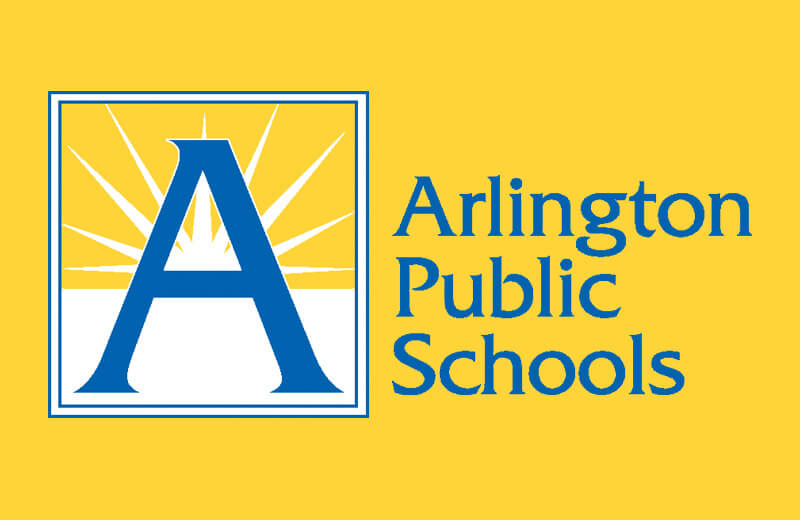SEL Focus: Social Awareness
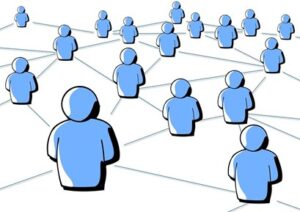
Social Awareness is the ability to take the perspective of and empathize with others from diverse backgrounds and cultures; to understand social and ethical norms for behavior; and to recognize family, school, and community resources and supports. Social awareness is a crucial component of appropriate classroom behavior, which contributes to an environment conducive to learning. Social awareness is also widely established as an important factor in workforce success. One recent employer survey conducted by the Partnership for 21st Century Skills demonstrates that four of the five most important skills for high school graduates entering the workforce are linked to social awareness: professionalism, collaboration, communication, and social responsibility.
Why This Matters:
Social awareness may contribute to better behavior and achievement in school and increased engagement with community and school resources:
- Positive Classroom Climate: Students with strong social awareness can more easily adapt to their environment, empathize with the perspectives of others, and engage in fewer disruptive classroom behaviors. This, in turn, creates an environment where students can focus on learning.
- Better Relationships: Students who demonstrate strong social awareness are able to engage in constructive communication with their peers and resolve conflicts when they arise. These students benefit from peer learning and know how to take advantage of social supports.
- Fewer Risky Behaviors: Students who are able to adapt to new environments, understand the needs and perspectives of others, and know where to get support when they need it are less prone to emotional distress and less likely to engage in risk behaviors, such as drug use and aggression, that interfere with school success.
Here are some tactics that can help you become more socially aware:
- Understand what it means to listen.

- Repeat what was said.
- Pay attention to tone of voice.
- Watch facial expressions and body language.
- Notice the details.
Learn more by watching this video: CLICK HERE Discover ways to help children develop social awareness and learn empathy by putting themselves in another’s shoes: recognizing emotions, appreciating diversity and showing respect for others.
Recommended Books to help teach young children about Social Awareness
Each book is available through Arlington Public School Libraries. Click on book title link for more information.
From moments of great joy and exuberance to [necessary] times of quiet contemplation, your heart is your guide
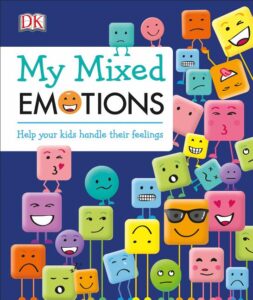
My Mixed Emotions: Help Your Kids Handle Their Feelings by DK
My Mixed Emotions explores the four main emotions, the reasons why we feel them, and the science behind each one.
Rescue & Jessica: A Life-Changing Friendship by Jessica Kensky, Patrick Downes, and Scott Magoon
When he is paired with a girl who has lost her legs, Rescue worries that he isn’t up to the task of being her service dog.

Under My Hijab by Hena Khan and Aaliya Jaleel
As a young girl observes that each of six women in her life wears her hijab and hair in a different way, she considers how to express her own style one day.

When the Cousins Came by Katie Yamasaki
Even though Lila’s cousins do some things differently, Lila loves when they come to visit.
April is Stress Awareness Month

Stress Awareness Month increases public awareness about the causes of stress and how to help combat it in this harried, modern-day life. Stress can filter in from various parts of life, from the workplace as well as personal relationships, and coping with and relieving it can certainly look different for each individual person. Learning about this month can certainly help anyone who struggles to cope with their stress and those may find themselves in need of guidance and advice. So get ready to get aware and involved with Stress Awareness Month!
History of Stress Awareness Month
There have been many investigations and studies into the cause of stress and how humans tend to react to it in different ways. Back in 1936, Hans Selye began his pioneering studies into stress and developed the concept of general adaptation syndrome. But it wasn’t until the 1950s that personality types were defined, which led to many other breakthroughs in the psycho-social sciences and a better understanding of the potentially devastating effects of stress on individuals as well as society.
Stress is a widespread feeling that almost everyone will experience at one time or another in their lives. As such, millions of individuals around the world are likely to struggle with it and have their lives impacted negatively by it.
Stress can have an impact on a person’s health, whether physically, mentally or emotionally–and often it is a combination of them all! These health issues, when allowed to build up over time, could manifest themselves in issues such as anxiety and depression, hormonal problems, difficulty sleeping, high blood pressure, heart disease and much more.
The most important thing with this month is that people are focusing on their physical, mental and emotional health and wellbeing. For some, this might mean putting themselves first for a change and focusing on bringing those stress levels down in whatever ways are possible.
Participate in the 30 Day Stress Awareness Challenge

One way of doing something for stress awareness month is to participate in the 30-day Stress Awareness challenge. This 30-day challenge encourages people to do one action each day that will benefit their physical, mental, and emotional wellbeing. This can be really helpful in changing a person’s mindset and outlook on stress, as well as finding ways to help cope with certain stresses that may become more obvious and pervasive over time. This is a great way for people to learn a lot about themselves and the particular triggers that tend to come with stress.
Practice Stress Reduction Techniques
Try out some of these simple practices that have been known to help people reduce the negative impact of stress on their lives:
- Breathing Exercises. One of the easiest ways to bust stress is by pausing to focus on the breath. Whether breathing slowly while counting, or using visualization techniques, the internet is full of ideas for reducing stress by taking everything back to the breath.
- Laugh More. Some studies have shown that people are more relaxed and have an improved mood when they practice laughing. Even when nothing is funny! Laughter yoga might be a practice worth checking out to reduce stress.
- Exercise. One of the best ways to minimize the impact of stress on the body and mind is through good, old-fashioned exercise. Sweat that stress away! It helps to improve sleep, balance hormones, increase endorphins and fosters relaxation following the workout.
- Reduce Stress Triggers. Take this month to become aware of what triggers tend to cause stress and anxiety. Is it to do with being late? Procrastinating? Terrible traffic? A messy house? Look at the ways that stress begins and then aim to resolve those with life skills such as time management, hiring help around the house, leaving the house sooner or other solutions.
National Alcohol Awareness Month
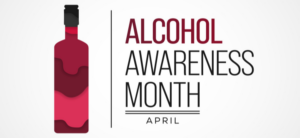
Every April the National Council for Alcoholism and Drug Dependence (NCADD) sponsors Alcohol Awareness Month to increase awareness and understanding of the causes and treatment of the nation’s #1 public health problem: alcoholism. The theme this year is “Changing Attitudes: It’s not a ‘rite of passage.’” The target audience: youth and their parents.
This campaign and associated events are an opportunity to reduce the stigma associated with alcohol dependence, as well as remove the barriers to treatment and recovery while making help available to those who suffer from the disease.
TRY TO GO DRY
An important part of Alcohol Awareness Month is choosing an Alcohol-Free weekend during the month of April. The intent is for you to stop drinking from Friday through Monday, and then gauge the effect of the alcohol-free days.
If your body has become used to the continual presence of alcohol, suddenly stopping can cause physical effects, such as sweating, nausea, headaches and trouble sleeping.
If it was difficult to manage 72 hours without drinking, that struggle could signal a dependence on alcohol that should be more closely examined. If you are having trouble with your three-day alcohol-free test, we urge you to learn more about alcoholism and its early symptoms and seek professional assistance if needed. (SOURCE: National Council on Alcoholism and Drug Dependence)If you have determined that your drinking is posing a problem in your life but has not yet led to severe consequences, you might consider actively cutting down and following these strategies:
- Change Environment/social circles: If you drink with the same group of friends who partake in drinking, it might be time to take a step back. When we are around others drinking, it feels natural to participate and want to fit in. If they are your true friends, they will support you for pursuing a healthier lifestyle. If they do not, try to do your best to keep moving forward. Try joining a gym or athletic club instead, or volunteer for a cause you believe in to fill up your time.
- Support Groups: Do research in your hometown to find other like-minded individuals who actively don’t drink. This could be an AA/NA or SMART Recovery group, or other organization for people who want to stop using substances completely, or it could be less defined. It could even be members of your family you make plans with more, or friends you can hang out with that aren’t looking to drink.
- Sharing your plan: Make sure to stay accountable to yourself by letting people in your life know what’s going on. Explain that you are cutting down or stopping, and ask if they could help you along the way.
March 21st-April 8th: APS Social-Emotional Learning Survey
We invite you to visit our webpage to view survey questions, FAQ’s about and learn more about the development of the APS SEL Survey from Panorama
WHAT IS SOCIAL-EMOTIONAL LEARNING?
Social-emotional learning (SEL) describes the mindsets, skills, attitudes, and feelings that help students succeed in school, career, and life. At its core, SEL focuses on students’ fundamental needs for motivation, social connectedness, and self-regulation as prerequisites for learning. Educators may also refer to SEL as “non-cognitive skills,” “soft skills,” “21st century skills,” “character strengths,” and “whole child development.”
Social-emotional learning is an important part of a well-rounded education. A 2017 meta-analysis from CASEL (the Collaborative for Academic, Social, and Emotional Learning) shows that investment in SEL has led to improved classroom behavior, better stress management, and 13 percent gains in academics.
A 2019 report from the Aspen Institute, “From a Nation at Risk to a Nation at Hope,” compiles evidence confirming that supporting students’ social, emotional, and cognitive development relates positively to traditional measures like attendance, grades, test scores, graduation rates, college and career readiness, and overall well-being. Research also shows that promoting student SEL starts with adults. In order to cultivate student SEL, caring adults in school buildings need to feel supported and validated. Adult social-emotional learning is the process of helping educators build their expertise and capacity to lead, teach, and model SEL. It involves cultivating adults’ own social and emotional competencies, wellbeing, and cultural competency, as well as a positive school climate that promotes SEL.
HOW CAN SCHOOLS MEASURE SOCIAL-EMOTIONAL LEARNING?
By asking students to reflect on SEL through surveys, APS can gather actionable data to prioritize supports. Panorama’s SEL Survey helps educators measure and improve SEL in the following areas:
- Skills and Competencies: The social, emotional, and motivational skills that help students excel in school, career, and life. Example topics: Growth Mindset, SelfEfficacy, Social Awareness
- Supports and Environment: The environment in which students learn, which influences their academic success and social-emotional development. Example topics: Sense of Belonging
- Well-Being: Students’ positive and challenging feelings, as well as how supported they feel through relationships with others. Example topics: Positive Feelings.
LEARN MORE: National Alliance on Mental Illness Arlington Parent Support Groups
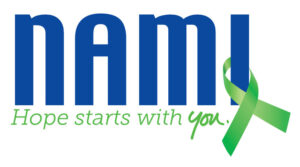
The National Alliance on Mental Illness, NAMI, provides group support geared to parents whose child is experiencing symptoms of a mental illness, including depression, anxiety, eating disorders, mood disorders and more. No diagnosis is required to participate. Participants are given the opportunity to share their story, experience support, and glean guidance (as desired) from group members regarding both community and school resources. Confidentiality is respected.
School Age Students and Teens (PK-12): For Questions Contact Michelle Best ([email protected])Sundays 7pm-8:30pm Register here for Zoom Meeting(s)
- April 10th and 24th
- May 9th and 22nd
- June 5th and 19th
Older Teen and Young Adults: 3rd Sunday 1-3pmFor questions contact: Adults: Naomi Verdugo ([email protected]) or Alisa Cowen ([email protected])
View Arlington NAMI Support Groups 2022 Flyer
LEARN MORE: Youth Mental Health First Aid Training Available to Staff & Parents
The Office of Student Services continues to be committed to training all new staff and re-certifying staff in Youth Mental Health First Aid (YMHFA). This is a 6-hour course that teaches how to identify, understand, and respond to signs of mental illnesses and substance use disorders. Registration for staff is through Frontline. Parents can register by calling the Office of Student Services at 703-228-6062. Training will be provided every month for the remainder of the year.
Upcoming session dates are: April 27, and May 10.
LEARN MORE: SCAN OF NORTHERN VIRGINIA
Nurturing Parents
For caregivers with children of all ages
Join a community that understands the challenges of raising kids. This series is designed to build skills, celebrate successes, and discuss challenges in a safe environment.
Parents leave with a support system and an array of new skills including healthy, effective discipline, stress management, family rules, praise, and more.
English: Tuesday’s 4/19—6/14 Spanish: Wednesday’s 4/27—6/15
Register for SCAN programs here
RESOURCES: CIGNA School Support Line – OPEN TO ALL
Don’t do it alone. There are many reasons to seek help. Some are common, others more serious. Either way, talk with us today if you or a family member are dealing with: Anxiety, Depression, Abuse, Eating disorders, Bullying, Self-harm, Addiction, Peer Pressure, Suicidal thoughts or anything else. No one has to be a Cigna customer to call. If you go to school, or have a child who goes to school, the School Support Line was created for you.This is a no-cost, confidential service that puts students and families in touch with mental health professionals who know how to listen, ask the right questions, and offer advice. And it’s available around the clock for you and for members of your family. 833-MeCigna (833-632-4462) We’re here 24/7/365!
- School Support Line Spanish
- School Support Line Amharic
- School Support Line Arabic
- School Support Line Mongolian
- School Support Line English
RESOURCES: CrisisLink Hotline & Textline
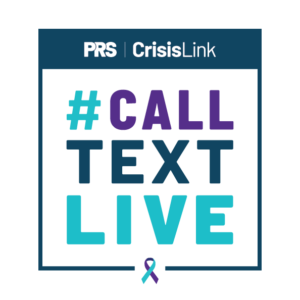
- Services available: Crisis intervention, suicide prevention, support, and information about community resources
- Who qualifies: Anyone experiencing emotional trauma, a personal crisis, or a family crisis.
- How to access: Call 703-527-4077 or 1-800-273-TALK (8255); or text CONNECT to 855-11
- Availability: Operated by PRS and staffed by highly trained paraprofessional volunteers and crisis line workers 24/7
- Website: https://prsinc.org/crisislink/
RESOURCES: Community Regional Crisis Response (“CR2”)
- Services available: Mobile crisis response, including screenings, assessments, psychiatric services, case management, post-discharge follow-up, care coordination, and safety planning
- Who qualifies: Anyone experiencing a mental health and/or substance use emergency that puts them at risk of hospitalization
- How to access: Call 844-627-4747 or 571-364-7390 to access phone, video conferencing, or in-person services
- Availability: Operated by the National Counseling Group, and staffed by counselors 24/7
- Website: https://www.cr2crisis.com/
RESOURCES:
Intake/Same Day Access (703-228-1560) Beginning December 20, 2021, Same Day Access/Intakes will be scheduled through 703-228-1560. Visit our website: Children’s Behavioral Healthcare – Official Website of Arlington County Virginia Government (arlingtonva.us) for updated information on how to access mental health and substance use treatment services.
REACH – Region II (855) 897-8278 If someone you care about, who has an intellectual or developmental disability, is experiencing a crisis due to behavioral or psychiatric needs, the REACH program can help. REACH is the statewide crisis system of care that is designed to meet the crisis support needs of individuals who have a developmental disability and are experiencing crisis events that put them at risk for homelessness, incarceration, hospitalization and/or danger to self or others.
For non-urgent, but concerning behavior, access resources through Arlington Children’s Behavioral Health by clicking here.
Local, Free Food Distributions
| Capital Area Food Bank has several monthly food distribution sites in Arlington available for individuals and families in need. Produce is distributed for free, and no registration is required! The Capital Area Food Bank’s Community Marketplace takes place at Arlington Mill Community Center, 909 S. Dinwiddie St., on the 4th Saturday of every month at 9 a.m. Capital Area Food Bank also distributes at a Mobile Market at 700 S Buchanan St, on the 2nd Thursday of the month from 3 p.m. – 5 p.m. For a full list of local Mobile Market food distributions, view and share this flyer in English and Spanish, or call the information line at (202) 769-5612. |
 Contact
Contact  Calendars
Calendars Careers
Careers Engage
Engage  District
District

